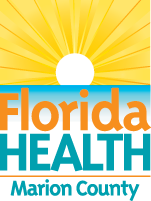Include COVID-19 precautions in hurricane season prep
August 20, 2020
OCALA, Fla.—Hurricane trackers recently increased their prediction for the number of named storms we will see this hurricane season. To help residents prepare for possible hurricane impact in the time of COVID-19, the Department of Health in Marion County is sharing information on how to factor COVID-19 into the hurricane season.
Prepare for hurricane season
- Give yourself more time than usual to prepare your emergency food, water, and medical supplies; state officials recommend having a minimum of seven days’ worth of food and water supplies and two week supply of needed medical items on hand. Home delivery is the safest choice for buying disaster supplies; however, that may not be an option for everyone. If in-person shopping is your only choice, take steps to protect your and others’ health when running essential errands.
- Protect yourself and others when filling prescriptions by limiting in-person visits to the pharmacy.
- Pay attention to local guidance about updated plans for evacuations and shelters, including special needs shelters and shelters for your pets.
- When you check on neighbors and friends, be sure to follow social distancing recommendations (staying at least 6 feet from others and wearing a mask) and other CDC recommendations to protect yourself and others.
Prepare to evacuate
- If you may need to evacuate, prepare a “go kit” with personal items you cannot do without during an emergency. Include items that can help protect yourself and others from COVID-19, such as hand sanitizer with at least 60% alcohol, bar or liquid soap, disinfectant wipes (if available) and two cloth face coverings for each person.
- Find out if your local public shelter is open in case you need to evacuate your home and go there. Your normal shelter location may be different this year due to the COVID-19 pandemic.
- Make a plan and prepare a disaster kit for your pets. Find out if your disaster shelter will accept pets. Be sure to also make disaster plans for livestock you may have.
- If you have special medical needs or will be going to a special needs shelter, make sure that you bring any additional needed medical or other supplies for your specific condition.
Protect yourself at the shelter
- Practice social distancing. Stay at least 6 feet from other people outside of your household, and wear a mask.
- Follow CDC COVID-19 preventive actions—wash your hands often and cover coughs and sneezes. Avoid sharing food and drink with anyone if possible.
- Avoid touching high-touch surfaces, such as handrails, as much as possible. Wash hands with soap and water for at least 20 seconds or use hand sanitizers with at least 60% alcohol immediately after you touch these surfaces.
- Keep your living area in the shelter clean and disinfect frequently-touched items, such as toys, cellphones, and other electronics.
- If you feel sick when you arrive at the shelter or start to feel sick while sheltering, tell shelter staff immediately.
- Learn more at cdc.gov/disasters.
Stay safe after the storm
- You should continue to follow preventive actions to protect yourself and others from COVID-19, like washing your hands and wearing a cloth face covering during cleanup or when returning home.
- It may take longer than usual to restore power and water if they are out. Take steps to prevent carbon monoxide poisoningif you use a generator.
- If you are injured or ill, contact your medical provider for treatment recommendations. Keep wounds clean to prevent infection. Remember, accessing medical care may be more difficult than usual during the pandemic.
COVID-19 update
Marion County is reporting 7,691 cumulative cases of COVID-19 as of this afternoon. Of Marion COVID-19 tests from Aug. 19, 8.95% were positive; the county’s cumulative positive test rate is 13.34%. The daily positivity rate for all new COVID-19 tests in Florida on Aug. 18 was 6.78%; the state’s cumulative positive rate is 13.55%.
A total of 121 Marion County residents have died after testing positive for COVID-19. They ranged in age from 32 years old to 98 years old.
For more information
For the latest on COVID-19 in Marion County, visit DOH-Marion online at Marion.FloridaHealth.gov and follow the agency on Twitter (@FLHealthMarion).
For the most up-to-date information on COVID-19 in Florida, visit floridahealthcovid19.gov. For general questions about COVID-19, call the state hotline (866-779-6121), local hotline (352-644-2590), or email COVID-19@flhealth.gov.




Connect with DOH